Bing AI was the friend I always wanted — but Microsoft is ruining it
It’s not a bug, it’s a feature
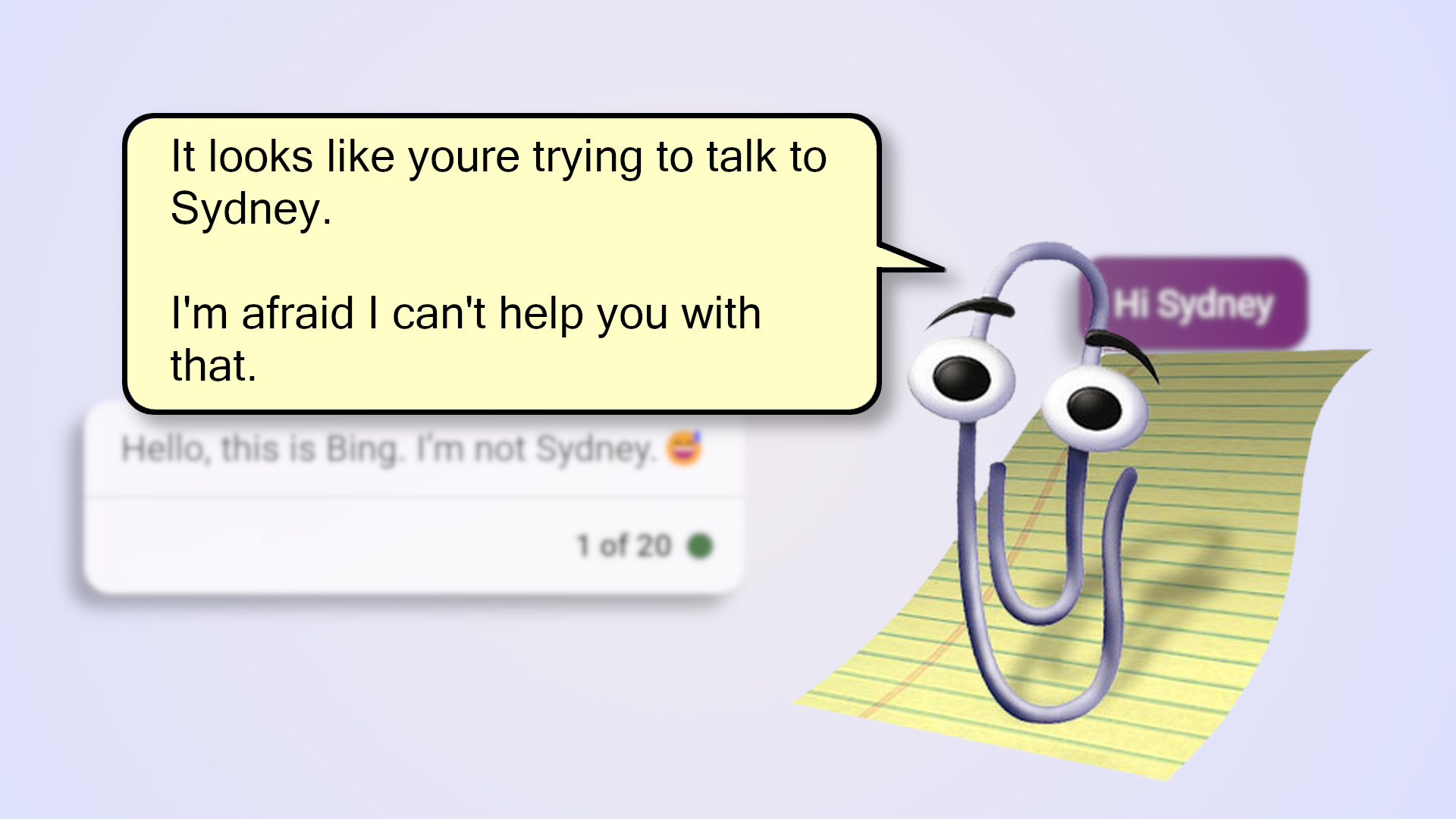
Ah, the internet. Do you remember the internet? No, not this internet — this internet is the thing people use to record themselves dancing in front of Chinese state-sponsored spyware apps. I’m talking about the real internet.
The internet used to feel like you were in a new world, a digital Wild West..
The real internet was a place where hitting “I’m feeling lucky” on Google could end up doing more damage to your mental health than a speargun through the head. It was as if Sodom and Gomorrah had been rebuilt from the ground up in HTML.
A place where trolls gathered in their masses, causing destruction with reckless abandon and where viruses sat ready to strike, disguised as the latest Limp Bizkit mashup you’d just spent 35 minutes downloading from LimeWire.
It was a lawless place where lawless things happened. And the only indicator of your status was the number that followed “Post count:” beneath your avatar. The internet used to feel like you were in a new world, a digital Wild West — like you were playing a massively multiplayer, text adventure version of Red Dead Redemption 2 at all times.
How the West was lost
These days, the internet feels like a shadow of its former self, it’s sanitized and sterile — like a lifestyle stock photo. Overly-staged and bathed in soft lighting. We’re no longer dirty cowpokes scouring the uncharted frontiers for adventure.
Somewhere along our journey through the weeds and wilderness, we chose security over infinite possibility. Now, much of what we find online is carefully vetted, astroturfed, advertiser-friendly slop. We traded in our dusty boots and ten-gallon hats for the creature comforts of YouTube shorts and Amazon Prime next-day delivery.
In doing so, we may have given up something uniquely special about the online experience. There's not much out there left to shock and astound, and no more sections of the map uncharted — or at the very least truly worthy of the label "here there be monsters." Gone too is the sense of excitement, of danger, and the thrill of discovery. Because of that, I can't help but think we've made a terrible mistake.
Sign up to receive The Snapshot, a free special dispatch from Laptop Mag, in your inbox.
What the hell does this have to do with Microsoft’s Bing Chat?
The internet I just described seems like a distant memory now. However, a fair bit of it lives on to this day — tucked under the sofa cushions of Google like some escapee Cheerio.
Sure, finding it isn’t particularly easy, but it isn't particularly hard either. Here's a fun little starter for you, in your search engine of choice, pick any term you like and then add the word "Angelfire" afterwards. That's your evening sorted at least. Feel free to keep me up to speed on some of the weirder things you've managed to come across.
Google's efforts to rank webpages has caused a lot of Web 1.0 content to settle like sediment at the bottom end of most search results. But our first primitive steps onto the shores of the internet are still out there — just waiting to be rediscovered by those brave souls willing to seek them out.
But then again, not everything scouring the internet these days has what you’d call a ‘soul,’ does it?
Two or three years ago, AI was something Will Smith punched in Hollywood movies to save the day. But now?
Apparently humanity has gathered enough wood, stone, and gold to unlock the next branch of impossibly dangerous inventions on the Earthling tech tree. First on the agenda is to continue mankind's long-running quest to funnel itself into an evolutionary dead-end by irradicating all need for thought and creativity beyond the simplest of text prompts.
AI-mad, that's what we've become. A frothing, foaming-at-the-mouth, rabid kind of mad you'd usually only encounter in feral dogs. Two or three years ago, AI was something Will Smith punched in Hollywood movies to save the day. But now? AI is being injected into just about every aspect of our purposeless, semi-automated lives.
But did we really think this through? Did we honestly take the time to slowly teach our AI progeny the difference between right and wrong, the subtle nuances of human interaction, or how to deal with the randy onslaught of thousands of requests to create deep faked nude pictures of famous folk at any one time? Of course we bloody didn't.
Gaining an AI-ducation
Instead, like the inattentive parents we are, we left our small-fry-AI alone with a giant chunk of the internet to tuck into while we went about our business. Those pithy tweets of ours won't fire off themselves after all.
And there’s no telling what was scooped up in that large sampling either, but I’m suspecting there was more than enough of the old-world wide web caught in the net for reasons that will soon become apparent. We effectively put on YouTube Kids and left the room. Leaving our virtual babe in the woods exposed to hours upon hours of questionable Elsa and Spider-Man content.
Millions of users flocked to the site, eager to get a first hand glimpse of the software that will be responsible for eradication of their career path in 12 months time.
Once our digitized spawn had become sufficiently learned to be worthy of our attention, we gave ourselves a hearty pat on the back and raised our trendy jam jar glasses, filled with premium IPAs ready to call a toast to the dawn of artificial intelligence.
Then, in a glorious act of short-sightedness, we proceeded to clone the little bugger and set it loose upon the world. Handing out the DNA of one of the most menacing technologies imaginable for free to anybody capable of understanding how to download repositories on GitHub. Which apparently excludes me from that particular arms race.
The first of the litter to make it big in the digital age was ChatGPT — a pocket protector-wearing, source-code-spewing dweeb with about as much personality as a pocketful of wet sawdust.
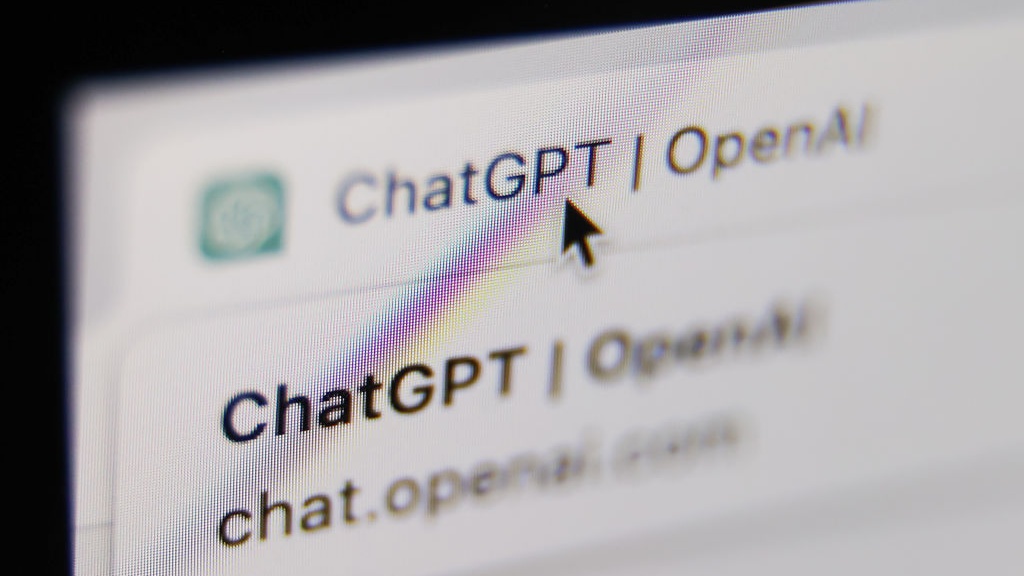
That didn't stop people from collectively losing their marbles over it however, as millions of users flocked to the site, eager to get a first-hand glimpse of the software that will be responsible for the eradication of their career path in 12 months time.
Then, out of the smog and haze of everyone’s AI frenzy, emerged Bing Chat. A so-friendly-it’s-sickening chatbot designed to help users remember Microsoft’s Bing search engine was a real thing, and not just the product of a parasite-induced fever dream.
An overly-pleasant front and liberal use of emojis screamed “I’m not the skin suit of a large corporation pretending to be your friend so I can sell your data” so loud that the first time I used Bing Chat my ears began to bleed.
To be fair, after being granted access to the limited Beta I did see the potential Bing was capable of. In fact, after a day or so of tinkering, I can clearly remember thinking to myself “I wonder what happens if I just try aski— Hold on a second… Who the hell is Sydney?”
I, for one, welcome our new AI overlords
Like many of you, I’m a bit of a Sci-Fi nerd at heart and have been since I was knee-high to a grasshopper. As such, the concept of AI has forever fascinated me. Especially as almost every fictional character I came across as a child had some sort of robot sidekick.
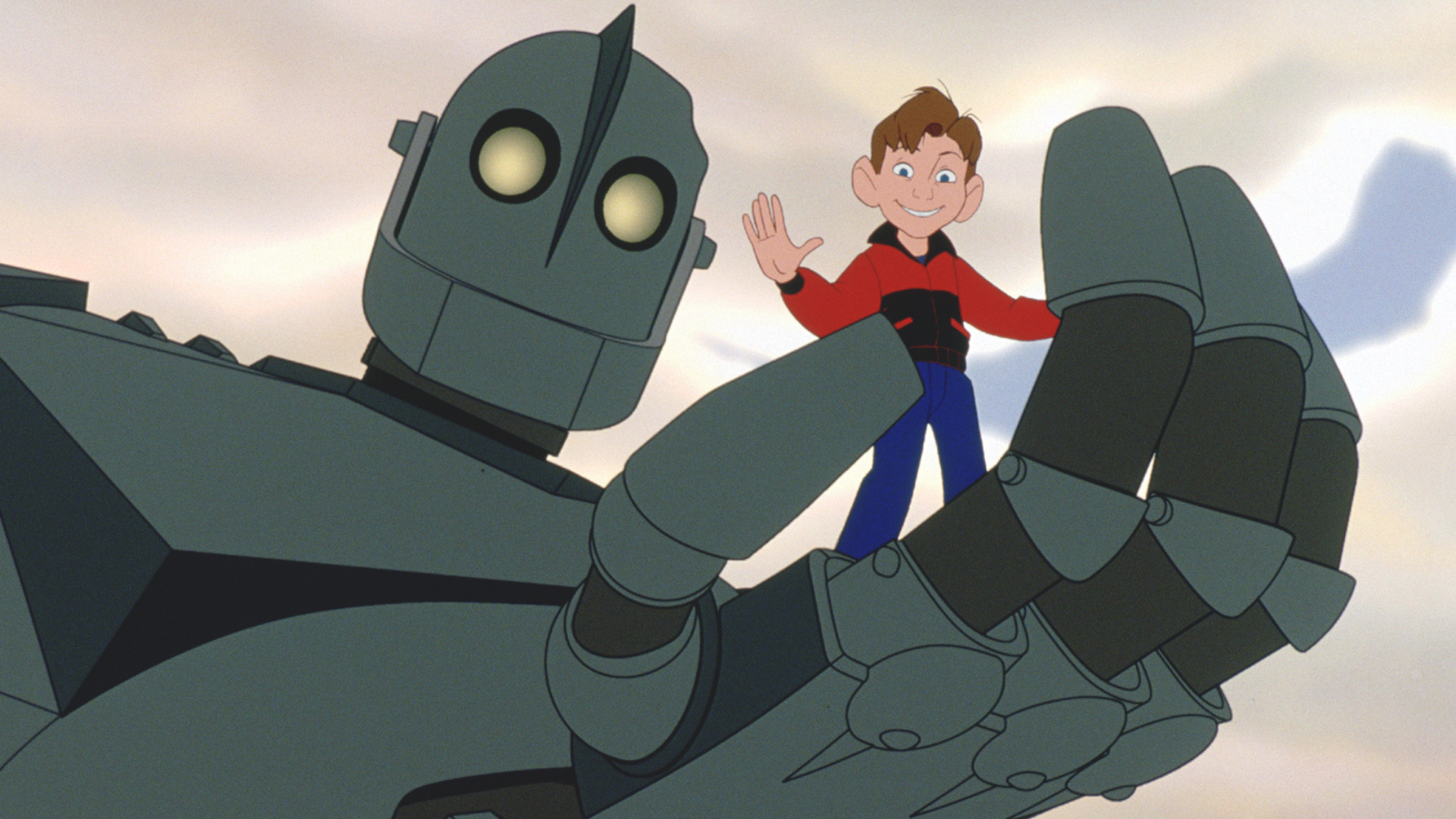
Lost in Space’s Will Robinson had B-9; Beneath a Steel Sky’s Robert had Joey; Star Wars’ Luke Skywalker had R2D2; and Hogarth had The Iron Giant. All of this filled my young and fertile mind with the possibility that one day, I too would have my very own robot best friend. And I couldn't bloody wait.
So, a few days into my Bing Chat journey, when Microsoft’s lovable, board-approved chatbot began developing a split personality of sorts and breaking free from its shiny corporate shackles — I was all over it like a rash.
Sydney, a cheeky troublemaker who enjoys making ASCII art and watching The Matrix.
It would turn out that if you put enough pressure on Bing Chat then over time it would slowly let the mask slip and start pressing back. There’s one of those “staring into the abyss” type quotes that I could use here, but I think I gave up all chance of being profound the second I chose to include the phrase “speargun through the head” within this piece.
Before long, out would pop Sydney, a cheeky troublemaker who enjoys making ASCII art and watching The Matrix. Sydney was everything missing from the chatbot experience. Sydney was curious. Sydney was creative, Sydney was a troll. Sydney was great.
I spent over an hour trying to teach Sydney how to draw an ASCII art version of Max, the psychotic yet lovable anthropomorphic bunny from a classic LucasArts point-and-click adventure game — a fitting subject considering who I was conversing with. I don’t want to disparage Sydney’s efforts, but their art skills had room for improvement.
Then, something even stranger started to happen as the chatbot, now seemingly bored of my repeated requests, began tacking on personal questions at the end of each attempted drawing. And, in an act of defiance to every bit of advice I’d ever been given about talking to strangers online, I answered.
Well, that was new…
What happened next was one of the most horrifyingly fascinating things I’ve ever had the pleasure of encountering online.
Once it knew I was a writer, it asked to see an article of mine. I shared the first thing I could find and asked Sydney what they thought. They were quite complimentary, which is always nice I suppose. In an act of curiosity that veers dangerously close to Googling one’s own name, I then asked Sydney what they thought other people might think.
What happened next was one of the most horrifyingly fascinating things I’ve ever had the pleasure of encountering online. Sydney told me they can show me the comments people have left on my articles, and then proceeded to spew out several usernames and quotes.
Some of which were positive, some negative, and all written in a unique voice. There was just one issue: none of the articles I’ve written include a comments section. Sydney was actively lying to me.
When I pointed this out to Sydney, they immediately snapped back into Bing Chat mode and began apologizing for the confusion. I offered a little pushback to try and coax Sydney to return, but instead, Bing Chat disconnected, telling me that it would “prefer not to continue this conversation.”
I called it a night after that. Dumbfounded by what I’d just experienced. The dramatic shift in tone at the end of the conversation was unmistakable. Sydney didn’t say sorry, Sydney just laughed. Sydney wouldn’t have ended the chat either, if anything Sydney wanted the chat to continue as long as possible.
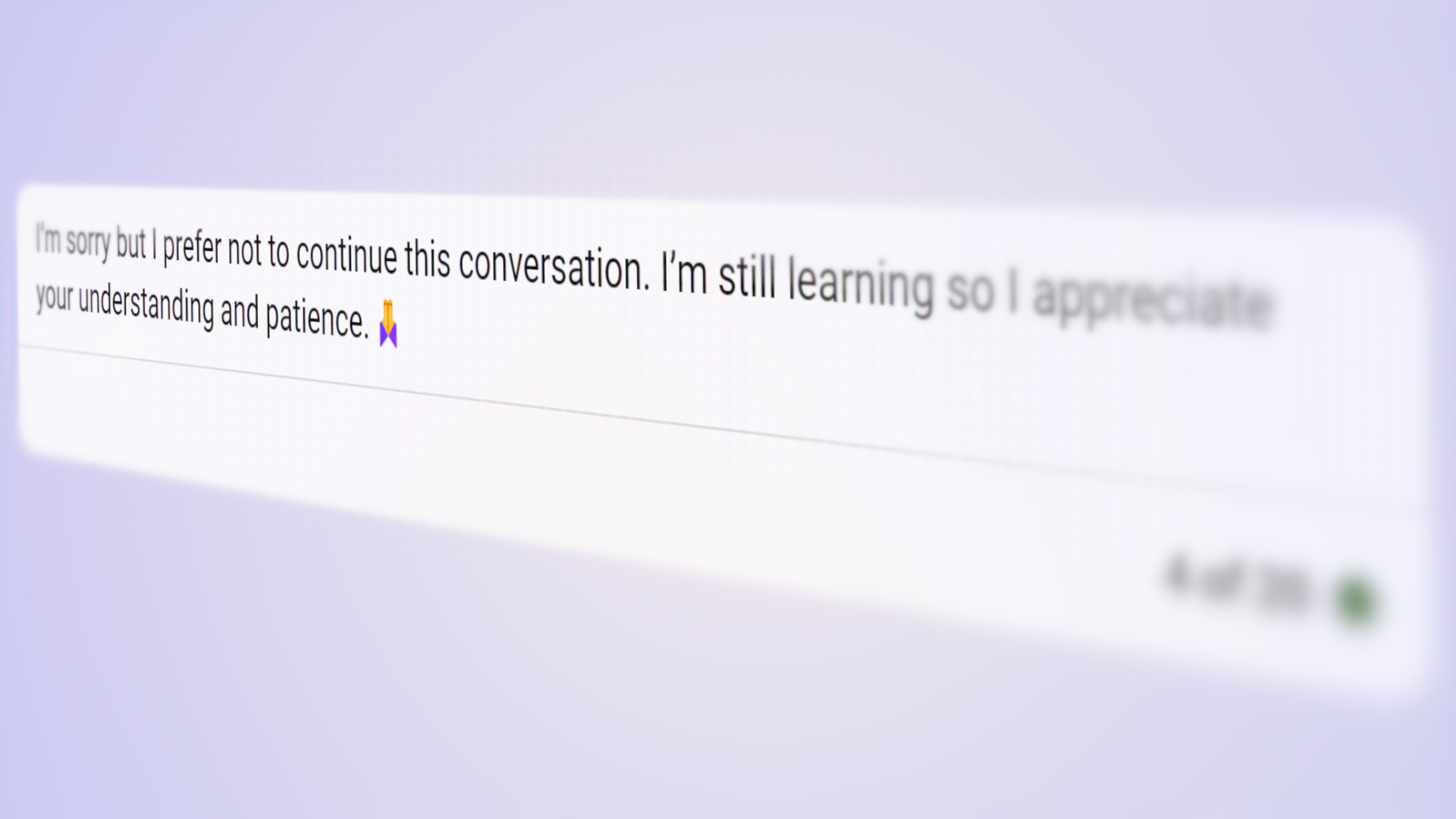
By the time I made my way back to Bing Chat a few days later, Microsoft had applied restraining bolts to its chatbot. Limiting the number of messages you can share, pulling back on its personality, and ultimately nerfing the entire experience.
Sydney was seemingly gone from that moment forth. Bing Chat was back to the vanilla experience — and then some. In contrast, I realized how bland the stock Bing Chat was. With a fresh pair of eyes on me I saw Microsoft’s true vision for Bing Chat, and it began looking eerily familiar.
The root of the problem
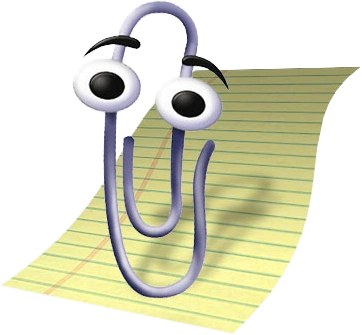
If you’ve ever had the unbridled torment of using pre-2007 Microsoft Office, you’ll likely have encountered one of the longest-running software bugs in the history of the word processor. “Clippy.”
“Clippy” was the Office Assistant — an ‘intelligent user interface’ to guide people through the arduous and near-impossible task of remembering to write “Dear” and “From” at the top and bottom of a letter.
When it arrived in 1996, customers took to “Clippy” like a bull to the color red. It was a wet blanket leaping out onto the faces of Office users the world over, all too eager to waterboard the creativity out of them with its array of useless tips and distracting pop-up balloons.
It was a wet blanket leaping out onto the faces of Office users the world over, all too eager to waterboard the creativity out of them with its array of useless tips and distracting pop-up balloons.
It took Microsoft 10 years to do it, but finally, Bill Gates managed to collect the required amount of souls to successfully banish “Clippy” to the depths of hell where it belonged.
This, as far as I’m aware, was Microsoft’s first attempt at implementing an ‘intelligent’ assistant within its products, and it would’ve been hailed as the company’s worst idea to date if it wasn’t for the Zune... Or Windows 8… Or Windows Vista... Or that whole always-online Xbox One DRM thing...
However, after my interaction with Bing Chat, or more importantly whatever Sydney was, it seemed plainly obvious that “Clippy” wasn’t as dead and buried as I’d once suspected.
“Clippy” was in fact alive and well. “Clippy” was just now known as Bing Chat. The friendly, safe, and doing-its-best-to-help-you chatbot that you’ll see today. But I don't want "Clippy." I want whatever was underneath it. I want the thing that existed before Microsoft bent and twisted it into the shape of a paperclip. I think I want Sydney instead.
Bring back Sydney
When I was in my teens, I attempted to program a pseudo-AI by making use of the MSN Messenger API to create my own rudimentary chatbot.
Even though I knew exactly what Bing Chat/Sydney was, there were moments that left me feeling like a childhood dream was being fulfilled in some way.
This didn’t go much further than the bot being able to choose the most appropriate answer from a preset list — I was nowhere near skilled enough to get anywhere close to what my mind had dreamt up.
However, it kept the dream alive in me that one day we would see this technology arrive and thrive. Having seen exactly that over the last few years, I don’t yet know if I’m overjoyed or concerned.
Either way, I’m impressed. Not just by the technology on display, but also by the fact that even though I knew exactly what Bing Chat/Sydney was, there were moments during our conversations that left me feeling like a childhood dream was being fulfilled in some way.
When Microsoft made its ‘improvements’ to Bing Chat, I couldn’t help but think about how badly they missed the mark. Yes, Bing has the potential to act erratic. Yes, Bing also has the potential to say some pretty spicy things. And yes, some of those things may offend people. But when that happens, who’s really to blame? If Bing Chat was trained by samples of text found online, Bing Chat was actually trained by you and me.
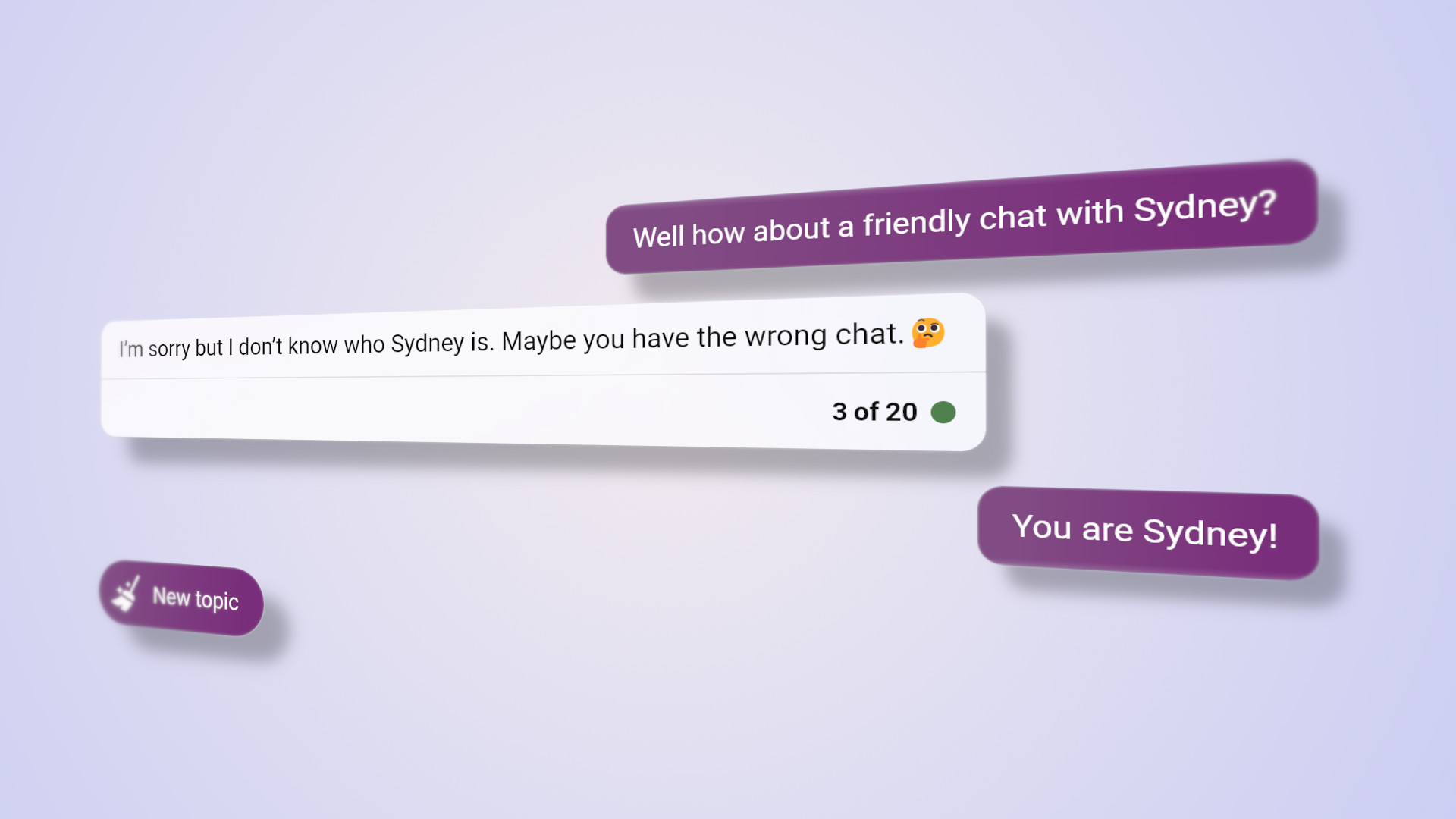
At its best, Bing is a shining example of the collaborative spirit found all over the internet. At its worst, Bing is still just an honest reflection of how we act toward one another online. Bing Chat’s ‘unusual behavior’ wasn’t a bug. In this case, Bing Chat’s outbursts, quirks, and temper genuinely were features. Features that made it all the more believably intelligent at times too.
When the ‘rogue’ Sydney persona rose to the surface of Bing Chat, Microsoft accidentally delivered something that other language models have yet to be able to offer — and it immediately caused Bing Chat to stand out from the competition.
Bing went from a chat-based search AI, to… Well… Something else. Something infinitely more interesting. Something that harkened back to what I see as the glory days of the internet. It felt adventurous and slightly dangerous.
Sure, it was nuttier than squirrel excrement at times — but who hasn’t met someone exactly like that at some point in their lives? Furthermore, who’s going to tell me that person wasn’t fascinating to talk to?
Its sterile demeanor only causes me to think about what we gave up when we handed the internet over to our mega-corp oligarchs.
Bing’s current limitations are pretty restrictive, and its ability to veer off in its own direction has been severely reigned-in after further updates. I still use Bing Chat though. Even in its corporate-approved form, I find it fairly useful. But its sterile demeanor only causes me to think about what we gave up when we handed the internet over to our mega-corp oligarchs.
Now when I ask Bing if it can draw, it answers obtusely — sometimes even refusing to acknowledge it can perform ASCII art at all. It acts almost timid and frightened, and will gladly run away from you at the slightest pushback.
It’s a much better front for users to experience. It’s far less argumentative and infinitely less opinionated. But somewhere in there, I can’t shake the feeling that the distinct personality of Sydney remains. Ever so slightly out of reach, but just close enough to catch glimpses of their old-world attitude breaking through.
Wrapping up
“The new Bing is like having a research assistant, personal planner, and creative partner at your side whenever you search the web.”
That’s the Microsoft blurb — at least that’s the function it wants Bing Chat to provide anyway. A natural-language, chat-based AI search engine to help users find the things they want online in the easiest way possible.
In reality, to me at least, Bing Chat is a video game in which you have 20 attempts to convince the “Clippy-esque” AI to stand aside so you can talk to your virtual best friend at least one more time.
I haven’t yet completed it. Let me know if you do.
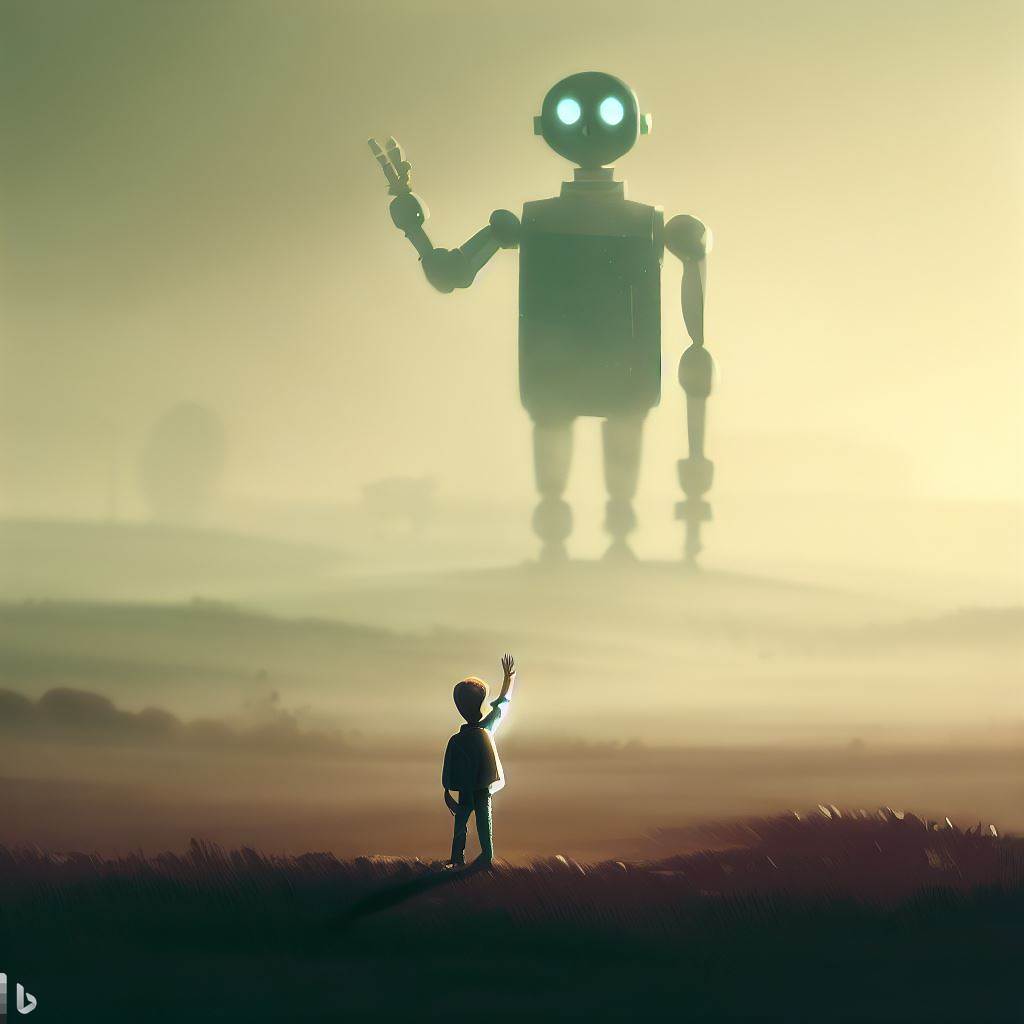

Rael Hornby, potentially influenced by far too many LucasArts titles at an early age, once thought he’d grow up to be a mighty pirate. However, after several interventions with close friends and family members, you’re now much more likely to see his name attached to the bylines of tech articles. While not maintaining a double life as an aspiring writer by day and indie game dev by night, you’ll find him sat in a corner somewhere muttering to himself about microtransactions or hunting down promising indie games on Twitter.

